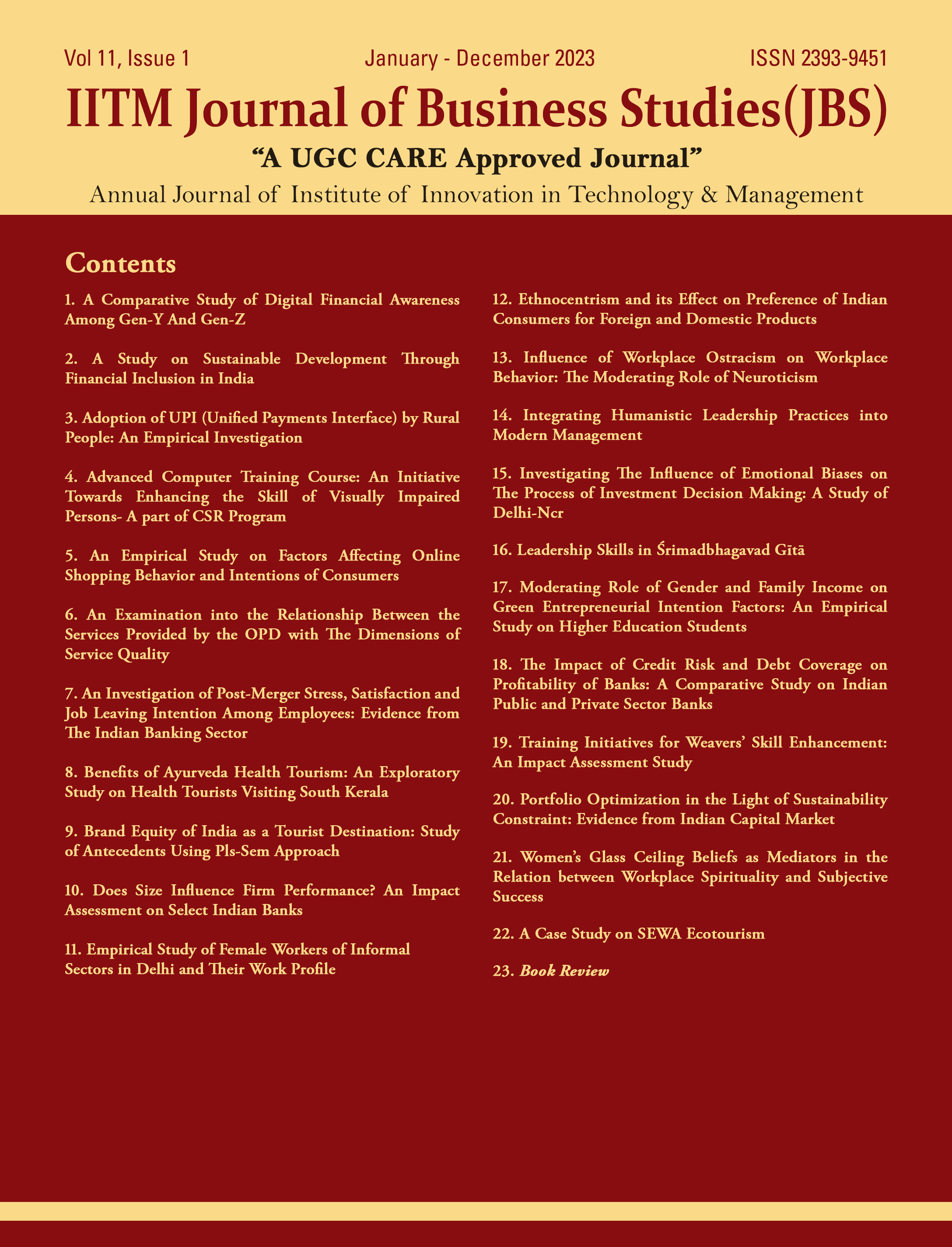The Relevance of Gita for Business Management Sector
Keywords:
Bhagavad Gita, Business Management, Leadership, Policy and Decision makingAbstract
Management skill is an academic discipline. In this modern world the art of Management has become a part and parcel of everyday life. It has gained application in other areas; governances, political leadership development issues and even ethics. The Holy Bhagavod Gita is essence of the Vedas and Upanisads. Gita is a universal scripture applicable to people of all temperaments and for all times. Bhagavad Gita is one of the most popular and accessible of all Indian scriptures, which is to be studied by anyone interested in Indian philosophy. Management principles come into play through the management of resources, finance and planning, priorities, policies and practice. The Gita teaches us that how one's aim in life can be achieved; howsoever it may be difficult, by doing his duty with devotion, and meditation, integrating many different threads of Indian philosophy. It gives correct solution to all the problems in human life. Bhagavad Gita contains the essential ideas and basic principles of business management. Five priority areas described in the Gita we must concentrate for better business management sector. These are followings; ethics, energy, efficiency, effectiveness and excellence. If we do follow this properly, we will win. This paper aims at introducing the holistic vision of management sector enunciated in the Gita which is more comprehensive than the 'Holistic View' of the modern management sector's theories and practice. The concept of Gita used in modern management field and also try to looks at how the Bhagavad Gita plays the important and significant role in the organisation to accomplish various modern business management practices.
References
Chopra Deepak, Perfect Health, Three Rivers Press, New York, 2000.
Chakraborty, S.K, Ethics in Management: Vedantic Perspectives, Oxford University Press, USA, 1995. 3. Karel Werner, Yoga and Indian Philosophy, Motilal Banarsidass Publishers, Delhi, 1977. 4. Mahaprajna, Science of Living, Jain Vishva Bharaci, Ladnun, Rajasthan, 1995.
Malhotra Vinod, Bhagwad Gita & Management, Pentagon Press, New Delhi, 2010. 6. Misra, Narayanji. Better Management and Effective Leadership, Puscak Mahal, New Delhi: 2007. 7. Prasada Rama(Trans.), Patanjali's Yoga Sutras, Munshiram Manoharlal, New Delhi, 2010. 8. Prabhupada Swami (Ed.), Bhagavad Gita Bhaktivedanta Book Trust, Sweden, 2015. 9. Raja Yogi and B.K. Jagdish Chander Science and Spirituality, Brahma Kumaris World Spiritual University, Mount Abu, India, 1988.
Sharma Hari Datt, Glory of Spiritual India, Pustak Mahal, Delhi, 1999.
Srivastava, 0. P., Bhagavad Gita: The Art and Science of Management for the 21st Century, Zorba Book Publication, Gurgoan, Haryana, 2018.
Upadhyay Gokul, Gita for Business Management, Leadership & Performance, Createspace Independent Publishing, USA, 2010.

